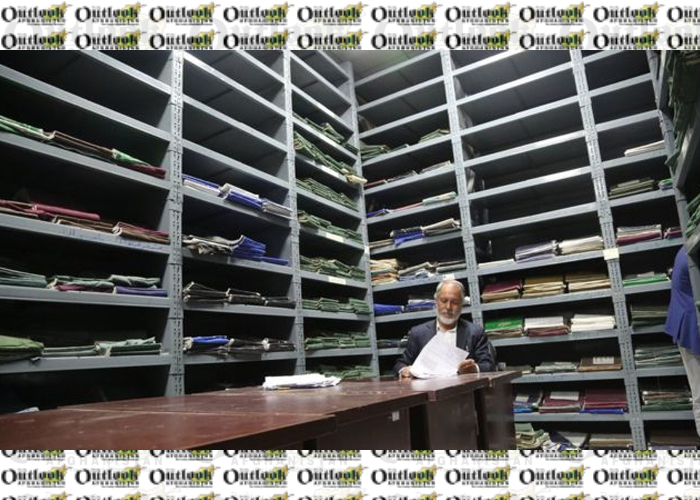On the eve of the Istanbul Peace Conference, one of the hot topics in Afghan political community is kind and nature of public administrative system in Afghanistan. Local experts criticize that the centralized public administrative system had no efficiency in the past and also neither in the current era. In addition, it is justifiable with the logic of democratic and republic systems. It is largely believed that a large part of administrative challenges such as administrative corruption, lack of professionalism, absence of rule of law, lack of institutional strategic planning, politicization, and ethnic discrimination are linked to the same issue. The public agencies are characterized by lack of transparency, nepotism, and concentration of power, even in the judicial system. Therefore, if we want to reach lasting development in the country, it would not be possible unless we have a decentralized or result-based management system and professional teams with strong political leadership, and commitment to fight against administrative corruption, ethnical discrimination, non-transparency, and inefficiency to strengthen effective administrative system, and sustainable development. The implementation of rule of law is the prerequisite to ensure good governance and sustainable development.
The decentralized administrative system is useful for the country because of several reasons. Firstly, it strengthens the national unity, public cohesion, and national power by depoliticizing many of administrative issues. However, the supporters of centralized public administrative system do not think so; they think that with the distribution of political and administrative power the country will be divided into different units and each unit would think about their own interests, not national interests while if we look at other decentralized systems such as the US and India they have not produced not such a negative result. Actually, they are more united and stable if we compare them with those centralized countries that attempt to unite people with physical force and power. Unfortunately, the supporters of centralized administrative system are unaware that unity is not a physical phenomenon to fix it with hard power and micro-management system; unity is a mental and psychological phenomenon that is strengthened with social peace, social justice, equality, and brotherhood under a pluralistic system.
Secondly, the decentralized administrative system strengthens the fragile democracy of the country with increasing participation of more people in political decision making. The nature of democratic system requires that the government become smaller but the society become bigger with more public participation and social freedom. Based on democratic values, no one should be disrespected because of color, skin, gender, race and culture. The limitation of freedom not only destroys the moral of creativities in the local administrations but also delegitimizes the government as democratic system it is supposed to be based on satisfaction of people. However, the supporters of centralized administrative tried to fill these gaps by sharing little operational power to the local units but in practice, it has not proved its efficiency in the last two decades; Whereas, the result-based management or the decentralized system has vastly proved its efficiencies in today’s world. Thirdly, the social structure of the country requires a decentralized administrative system in the country. The experience has shown when the social structure is composed of several ethnic groups, the probability of social convulsions get higher as each ethnic group emphasizes its originality and superiority, but in the decentralized system, they have no further reason for social and political conflicts. In the other word, when there are no elements to disrespect the ethnic groups, the moral of radicalism are gradually disappeared, but if the ruling ethnicity, religion, language attempting to impose its values on other groups it inevitably promotes the root of radicalism as most of the radical movements has reactionary nature. This problem has clearly proved in the history of different countries when one group tried to prove its superiority by imposing its values on others while the decentralized system has also proved its efficiencies in different advanced countries with diverse social structures.
Fourthly, the mountainous and complicated geography of the country is more compatible with a decentralized administrative system rather centralized administrative system. Given the poor infrastructure of transportations, the central personnel and other authorizes are not able to reach provinces, districts, and remote villages, especially in the cold seasons. Even, if we have the most advanced transpiration system, the central authorities are unaware with requirement and vast challenges of local units and provinces. Most of the central personnel have never visited the provinces while the governor and local authorities are more familiarized with the needs and challenges of the provinces. How it is possible that the president as an individual handle with the needs and requirements of 34 provinces collecting reports from hundreds of central and local units with tens of independent commissions, and overall national and foreign policies. In short, the result of historical and also scientific studies shows that the central administrative system does not work efficiently in Afghanistan. As result of centralized system and unequal distribution of wealth and opportunities the people are regularly move from rural areas to urban areas. On one hand, the overpopulated cities are already replete with various abnormalities such as poverty, prostitution, divorce, theft, robbery, insecurity, drug trafficking, psychological problems, suicide, reduction of water, environmental issues, insecurity, and so on. On the other hand, Afghanistan is witnessing the most rapid population growth in the world.
With the centralized system and unequal economic opportunities, the rural resident will continue moving to the cities while we are already unable to provide employments, maternal, infant health and etc. If this condition continues, there are serious fear and concern that large cities face uncontrollable catastrophes in the future.
Home » Opinion » What kind of public administrative system is suited for Afghanistan?
What kind of public administrative system is suited for Afghanistan?
| Mohammad Zahir Akbari

